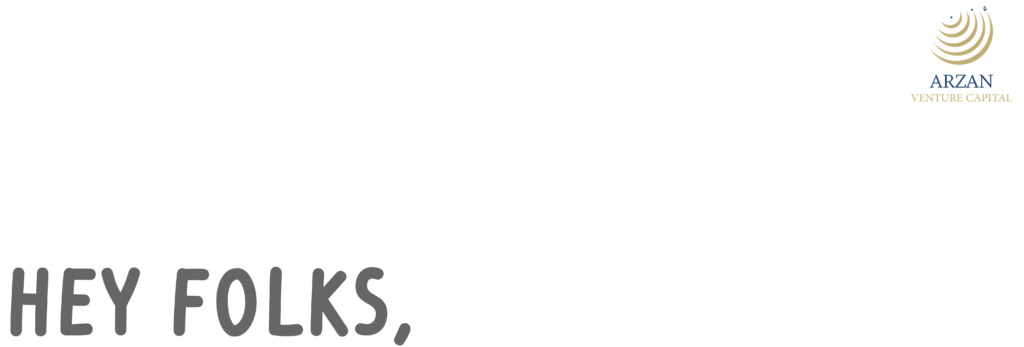
MergersENAcquisitions

Is it June or July already? It’s getting harder to keep track of time…
Corona, go… and from this line until the end of the newsletter, we are going to discuss the business as usual. It’s not ignorance, it’s overcoming the present moment. Even more; it’s imagining the future. Our team put their heads together to share with you MENA’s M&A of tomorrow and the day after—maybe realistic, maybe not. If you can dream it…
Will 2020 give MENA its first super app?
Having a dry-powder in your hands is definitely a wildcard in the current times. And while some valuations are dropping, this is a unique chance for some swift M&A deals for those who spot the right opportunity out there. So, perhaps, it doesn’t come as a surprise that the tech M&A activity reached the highest levels since 2015. We are not even halfway into 2020 and the ‘Big Five’ (i.e. Alphabet, Amazon, Apple, Facebook and Microsoft) has already announced 19 M&A deals, out of which 5 belong to Apple alone. The competition in the tech sector is definitely weighty.
Where does ArzanVC’s Team see the biggest potential for M&A? Remember that we don’t attempt to imply here that companies within the below sectors need some sort of saving. After all, 2020 is already poised for M&A and we see it as a good tool in general.
While we are witnessing more vertical M&A in MENA, Eyad argues it’s yet too early for such moves. He thinks that it still makes more sense to have horizontal rather than vertical deals. The first step could be an in-country M&A that would gradually consolidate smaller players into one bigger platform. Many MENA startups—no matter how big—do need more global scale to make themselves attractive enough to international investors. Laith, on the other hand, suggests that this may be the right time for ride-hailing companies to enter new verticals. And Hasan thinks that COVID-19 made startups realize their weak points, hence M&A activity might be used to elevate those weak points and emerge stronger.

1. food delivery/e-commerce – food delivery platforms are the no1 place to go to right now. While some well-established food delivery players may be offering a wide variety of food delivery services, they may want to focus on specific outlets to increase the scope of their offering.
2. ride-hailing –ride-hailing companies may consider entering new verticals, out of which logistics (delivery, parcel delivery) or even food delivery appear as plausible options to increase the startups’ growth potential. While ride-hailing may have been paused for a moment, these new segments can provide the companies with a better balance and a new impetus in general while making use of the existing assets and brand name.
3. fintech/payment processing – many POS SaaS platforms can be ready for a merger in order to consolidate their footprints. We see the potential especially in the Gulf area.

4. health tech – given the boom in online mental health services, general health platforms could consider acquiring specific platforms with a niche focus on certain areas such as online therapies.
5. copy-paste startups – many of the startups we have in MENA are basically concepts that were initiated in developed markets and regional entrepreneurs simply copied them. Sectors like grocery delivery, e-commerce or fintech are a playground for a lot of startups that practically do the same thing but each in their own respective country, which represents, in global terms, a very small market. By forming one regional player, they would not only increase their loyal customer bases but also unite into a fairly massive regional platform. Sounds good enough, right?
There is another concept that Hassan El-Keyi pointed out: the possibility of the first super app in MENA. There already exist few semi-super apps, which are apps offering various services in different segments such as transport, food delivery and, for example, a mobile wallet.
And how does he envision the first MENA super app coming to life? Well, most probably a well-established international super app like the Chinese WeChat or possibly a US counterpart would enter the MENA market through mobile carriers, mobile wallets and semi-super apps in general. In the East-West dilemma, China appears to have more experience in building super apps (e.g. combining e-commerce/messaging with mobile payments) than the US. Exciting least to say.
Imagine a well-established telecom operator or ride-hailing business acquiring a digital payments startup. Or a regional retail giant acquiring a retail tech startup. Or an offline hypermarket consolidating the digital grocery market. Or a major pharmaceutical company getting their hands on a health tech startup…
P.S. If you have a minute, tell us your personal M&A dreams.
The word of the COVID-19 crisis is adaptability. Business areas such as groceries delivery, online ed-tech, streaming and online comm platforms are at low risk, while ride-hailing, essential e-commerce and logistics are at medium. High risk zone entails of travel e-commerce, booking apps and non-essential e-commerce. But we must not forget that the survival of each and every business depends on how flexible it is to adapt and withstand the crisis.
Family Postcard
Forbes published a feature on Mejuri’s mastership of disrupting the jewelry industry. Read CEO Noura Sakkijhas’ insights here.
🍕🌮🍜+🤍 = voucher
PointCheckout has launched BuyNowDineLater.com initiative in partnership with food tech partners to support UAE restaurants. Pick your fav restaurant, buy a gift voucher and spend it when they reopen.
State of social media in 2020
Crowd Analyzer released its famous State of Social Media Report for 2020. Want to know the latest industry insights, social media trends and how to better connect with your audience? Download a free copy
🚛 TruKKer+Saferoad
TruKKer and Saferoad Information Technology signed in a new partnership agreement to provide joint services and make Saudi road freight even more efficient and safe.

Latest Jobs @ArzanVC Family
- Senior Software Developer at Cartlow (Dubai, UAE)
- VP of Engineering at POSRocket (Jordan)
- Digital Growth Hacker at Repzo (Jordan)
- Global PR Manager at Swvl (Dubai, UAE)
- Graphic Designer at Swvl (Egypt)

Don’t stop dreaming.
Hasan


























